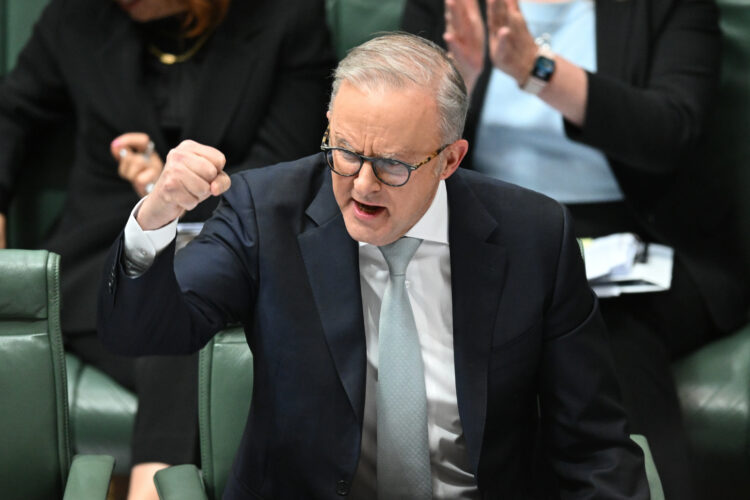AAP
Australia’s stronger-than-expected economic growth could dash hopes for further interest rate cuts.
Reserve Bank of Australia governor Michele Bullock insisted she does not know “at this stage” what the uplift in economic growth revealed on Wednesday could mean for interest rates.
“But it does mean that it’s possible that if it keeps going, then there may not be many interest rate declines left to come,” she said.
Ms Bullock delivered the 60th Shann Memorial Lecture at the University of Western Australia on Wednesday, when she was asked about lowering interest rates.
“There’s always one,” she said, as the room full of seasoned and aspiring economists laughed heartily.
Her speech focused on technological change, including the bank’s increasing use of text analytics models providing a “third lens” to monitoring shifting business conditions.
“But we also overlay our own judgement on top of those things.
“I personally don’t see a world where we place all our faith in a model,” she said.
Traders pared back their rate cut expectations after the Australian Bureau of Statistics on Wednesday revealed the surprise jump in the nation’s economic growth rate.
Gross domestic product surged from 1.4 to 1.8 per cent on an annual basis in June, above the Reserve Bank’s forecast of 1.6 per cent.
CommSec chief economist Ryan Felsman does not expect the hotter-than-expected figures to turn the RBA away from its gradual easing cycle.
Markets were still pricing in another 25-basis point reduction to the cash rate in November, but the total amount of easing priced in dropped from 50 to 44 basis points, signalling investors think there is now a risk of less than two more cuts.
In welcome news, productivity as measured by GDP per hour worked climbed 0.3 per cent over the quarter to be 0.2 per cent higher over the year.
But that is still well below Australia’s historical average, limiting the nation’s maximum growth potential.
“The key to that question is really, how do we lift the speed limit on our economy,” Dr Chalmers said.
“We only do that by making it more productive, by making sure that we can get faster growth with low inflation, and that’s really one of the motivating forces behind all of the work that we’ve been doing this term.”
The RBA in August downgraded its assumption for medium-term productivity growth to 0.7 per cent, which caused it to mechanically lower its assumption for Australia’s GDP growth potential to two per cent per year.
Without an increase in productivity growth to about 1.5 per cent, inflation will struggle to stay in the RBA’s two to three per cent target band over time, Mr Felsman said.
“In our view, more business investment and slower unit labour cost growth is required to drive a sustainable improvement in productivity metrics,” he said.
Business investment fell 0.4 per cent over the quarter, although that was partly explained by the completion of some large mining and renewable energy construction projects, said Treasurer Jim Chalmers.
Investment in intellectual property surged 1.9 per cent.

